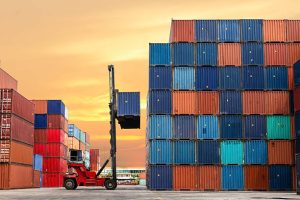Contract Manufacturing: Green Energy Company
Scope For This Project
The production of renewable energy products, such as solar panels, wind turbines, and battery storage systems, requires a complex and interconnected supply chain. The supply chain in green energy manufacturing involves a series of interconnected processes, suppliers, and technologies that are necessary to produce these products. A typical supply chain in green energy manufacturing may include
Table of Contents
Innovative Green Energy Company Utilizes Contract Manufacturing for Supply Chain Success
Client sitaution
Trucks are an essential component of the supply chain and are used to transport a variety of goods and loads. There are several different types of loads that can be transported on a truck, each with its own unique set of requirements and regulationsCompetitors are investing billions of dollars in new plants and infrastructure to increase their production capacities and capture a share of the market. This increased competition has resulted in the industry going through a huge period of uncertainty, volatility, ambiguity, and complexity, making it challenging for companies to remain competitive.
Our client in particular, a leader in green energy innovation, is looking to achieve with hundreds of millions investment what their competitors are achieving with ten times or more investment. This is a daunting challenge, especially when one considers the technical requirements of the systems that are to be built. The bar for technical expertise is extremely high in this industry, with only a handful of companies in the entire world possessing the capabilities to build the systems that are in demand.
General Supply chain of green energy company
- Raw material suppliers - This includes suppliers of raw materials such as silicon, aluminum, and other metals used in the production of solar panels and wind turbines.
- Contract manufacturers - These are third-party manufacturers that produce components or complete systems on behalf of the green energy company.
- Logistics and transportation providers - These are companies that provide transportation and logistics services to move raw materials, components, and finished products from suppliers and manufacturers to customers
- Assembly and testing - The components are then assembled into the final product, such as a solar panel or wind turbine. The final product is then tested to ensure that it meets the required quality standards and specifications.
- Distribution - Once the final product has been manufactured and tested, it is distributed to suppliers, distributors, or end-users. This may involve transportation by road, rail, sea, or air.
- Maintenance and repair - Green energy products require ongoing maintenance and repair to ensure that they continue to operate efficiently. This may involve the replacement of components or the provision of maintenance services.
The supply chain in green energy manufacturing involves a series of interconnected processes, suppliers, and technologies that are necessary to produce renewable energy products such as solar panels, wind turbines, and battery storage systems.
Key Areas To Analyze
- Energy production: The amount of energy produced by the plant is one of the most important metrics to monitor. This data helps to understand the plant’s overall efficiency and identify any issues that may be affecting its performance.
- Equipment performance: Data on the performance of individual components of the plant, such as turbines, generators, and transformers, is also analyzed. This information helps to identify any equipment that may be underperforming, which can lead to increased maintenance costs and reduced energy production.
- Maintenance costs: Regular maintenance is an important part of the operation of a green energy plant, and data on maintenance costs can help to optimize this process. This information can be used to determine which maintenance activities are most critical, and to prioritize spending on maintenance activities that will have the greatest impact on the plant’s performance.
- Environmental impact: Green energy plants have a positive impact on the environment, but it is important to monitor the plant’s impact on its surroundings. Data on emissions, waste generation, and other environmental factors is collected and analyzed to ensure that the plant is operating in a sustainable manner.
- Financial performance: The financial performance of the green energy plant is also monitored and analyzed. This data helps to understand the costs associated with operating the plant, and to make informed decisions about how to optimize its operation for maximum profitability.
Actions to improve operations
- Study of the contract manufacturing universe: Understanding the contract manufacturing landscape is essential for identifying potential partners who can help to improve operations. This involves studying the market and researching the capabilities of different contract manufacturers.
- Identifying key potential players: Based on the study of the contract manufacturing universe, it is important to identify key potential players who have the expertise, resources, and capabilities to support the green energy company.
- Ramp up Production: Once a contract manufacturer has been selected, the green energy company can ramp up production to meet demand and improve operations. This can be achieved by implementing new processes, investing in new technology, and optimizing supply chain management practices.
Result
Reduced Investment Requirements: By outsourcing production to a contract manufacturer, a green energy company can significantly reduce its investment requirements for ramp-up. This can be achieved by leveraging the existing infrastructure, technology, and expertise of the contract manufacturer, which eliminates the need for the green energy company to make large upfront investments in these areas.
Cost Reduction: Compared to in-house manufacturing, contract manufacturing can result in a cost reduction of 35% or more. This is due to the economies of scale achieved by the contract manufacturer, which can produce goods more efficiently than a green energy company producing in-house. Additionally, contract manufacturers often have lower overhead costs, which can be passed on to the green energy company in the form of lower prices.
Supply Chain Flexibility: Contract manufacturing provides the green energy company with greater supply chain flexibility. This includes the ability to scale up or down production as needed, respond to changes in demand, and access new markets and technologies more quickly. By outsourcing production to a contract manufacturer, the green energy company can improve supply chain security. This is because the contract manufacturer is responsible for managing the production process, ensuring that goods are delivered on time and to the desired quality standards.
Conclusion
In conclusion, contract manufacturing can be an advantageous strategy for green energy companies. Contract manufacturing involves outsourcing the production of products to a third-party manufacturer, who specializes in the production of specific components or final products. By doing so, green energy companies can achieve a range of benefits, including:
- Reduced investment requirements – Contract manufacturing allows companies to reduce their capital expenditures by outsourcing the production of products to a third-party manufacturer. This enables companies to focus their resources on research and development, marketing, and other areas of the business.
- Cost reduction – Contract manufacturing can be more cost-effective than in-house manufacturing as the manufacturer can benefit from economies of scale and specialization. This can result in lower production costs, which can be passed on to the customer.
- Supply chain flexibility – Contract manufacturing can provide flexibility in the supply chain by allowing companies to quickly adjust production levels to meet changing demand. This can be particularly beneficial in the green energy industry, where demand for products can be unpredictable.
- Security – Contract manufacturing can provide greater security for green energy companies by reducing their reliance on a single manufacturing facility. This can help to mitigate risks associated with supply chain disruptions or quality issues.
- Competitive advantage – Contract manufacturing can help green energy companies gain a competitive advantage by enabling them to bring products to market quickly and at a lower cost. This can help to increase market share and drive growth.
About the Author
 Vivek Sood: Sydney based managing director of Global Supply Chain Group, a strategy consultancy specializing in supply chains. More information on Vivek is available on www.linkedin.com/in/vivek and more information on Global Supply Chain Group is available www.globalscgroup.com
Vivek Sood: Sydney based managing director of Global Supply Chain Group, a strategy consultancy specializing in supply chains. More information on Vivek is available on www.linkedin.com/in/vivek and more information on Global Supply Chain Group is available www.globalscgroup.com
Vivek is the Managing Director of Global Supply Chain Group, a boutique strategy consulting firm specialising in Supply Chain Strategies, and headquartered in Sydney, Australia . He has over 24 years of experience in strategic transformations and operational excellence within global supply chains. Prior to co-founding Global Supply Chain Group in January 2000, Vivek was a management consultant with top-tier strategy consulting firm Booz Allen & Hamilton.
Vivek provides strategic operations and supply chain advice to boards and senior management of global corporations, private equity groups and other stakeholders in a range of industries including FMCG, food, shipping, logistics, manufacturing, chemicals, mining, agribusiness, construction materials, explosives, airlines and electricity utilities.
Vivek has served world-wide corporations in nearly 500 small and large projects on all continents with a variety of clients in many different industries. Most of projects have involved diagnostic, conceptualisation and transformation of supply chains – releasing significant amount of value for the business. His project work in supply chain management has added cumulative value in excess of $500M incorporating projects in major supply chain infrastructure investment decisions, profitable growth driven by global supply chain realignment, supply chain systems, negotiations and all other aspects of global supply chains.
Vivek has written a number of path breaking articles and commentaries that are published in several respected journals and magazines. Vivek has spoken at several supply chain conference, forums and workshops in various parts of the world. He has also conducted several strategic workshops on various aspects of supply chain management. He received his MBA with Distinction from the Australian Graduate School of Management in 1996 and prior to these studies spent 11 years in the Merchant Navy, rising from a Cadet to Master Mariner.
More information on Vivek is available on www.linkedin.com/in/vivek and more information on Global Supply Chain Group is available on www.globalscgroup.com
Related Posts
Click below to see related posts.

The Impact of Plummeting Shipping Container Prices Across Industries
Explore the far-reaching consequences of plummeting shipping container prices on diverse industries, revealing the intricate connections shaping global trade, supply chains, and economic landscapes.

Race Day Logistics: Intricacies of Pit Stop
Explore the race day’s heartbeat: the art of pit stops. Uncover the intricate logistics orchestrating split-second tire changes, refuels, and strategy adjustments that define Formula 1’s high-speed drama.

Mastering Travel Logistics in Formula 1 Racing
Discover the art of flawless travel logistics in the high-speed world of Formula 1. Uncover how precision planning and real-time coordination keep teams on track across the global circuit.
